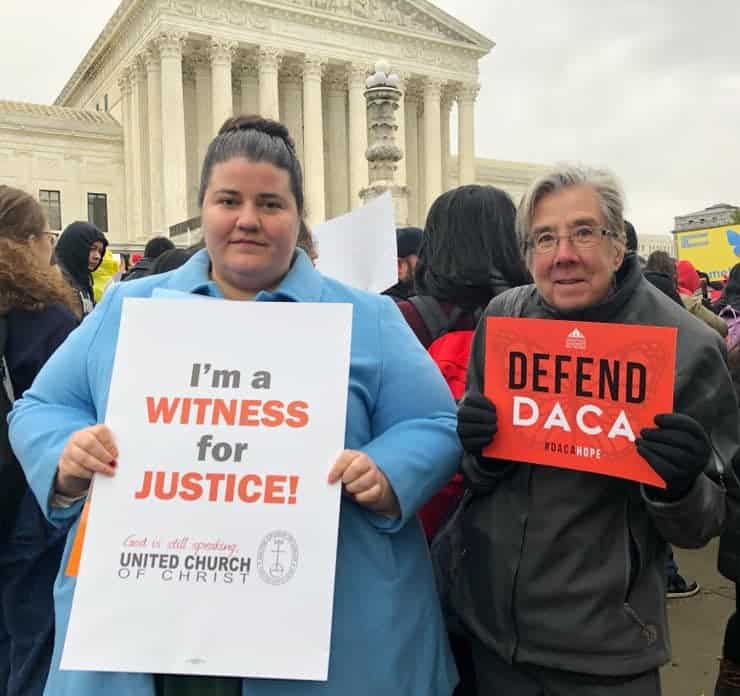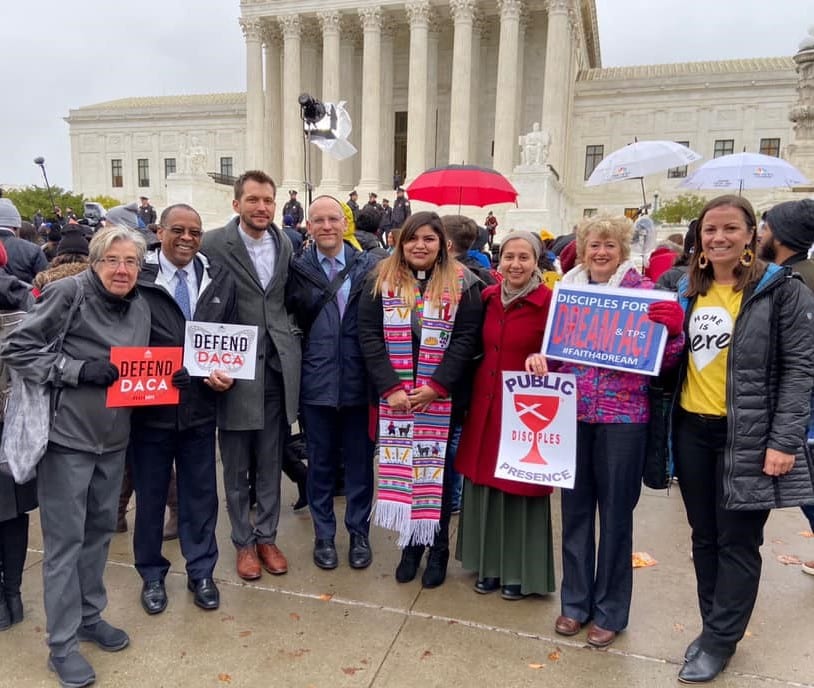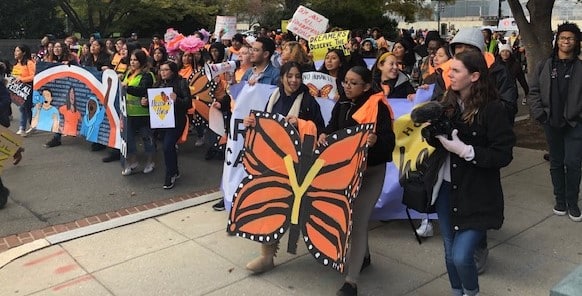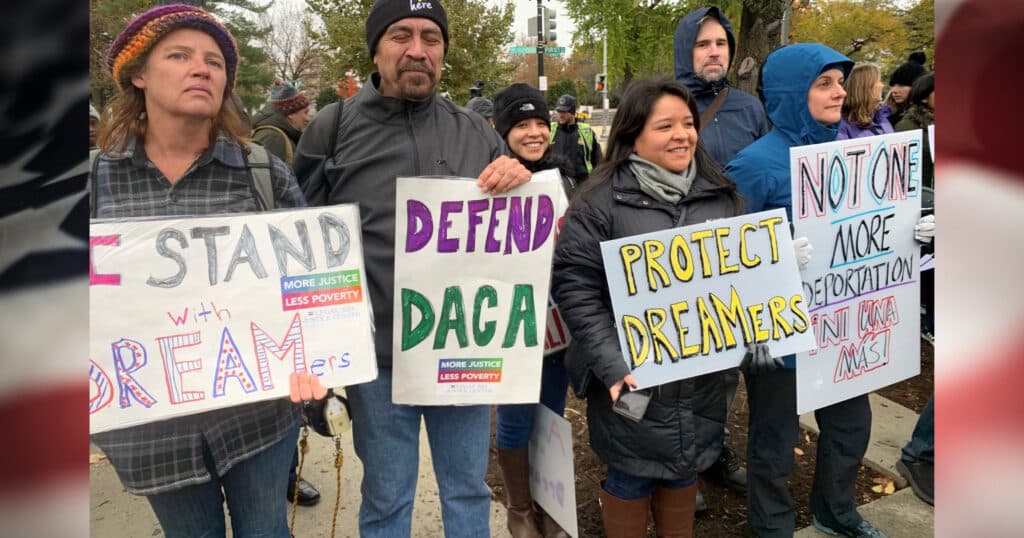‘Disappointing’ court blow to DACA stresses need for legislation, UCC advocates say
United Church of Christ advocates for a U.S. program that protects certain immigrants reacted with disappointment to an Oct. 5 federal court decision.
The Fifth Circuit Court of Appeals ruled that the Deferred Action for Childhood Arrivals program violates U.S. immigration law. The ruling did not order an immediate end to the program, which means individuals with DACA — sometimes called “Dreamers” — can, for now, continue to renew.
“The recipients of the DACA program have for too long been left in limbo,” said Katie Adams, domestic policy advocate with the UCC’s Office of Public Policy and Advocacy in Washington, D.C. “This Fifth Court decision to determine that DACA was not established under legal authority is profoundly disappointing and emblematic of the ongoing efforts of many to undermine and dismantle the program.
“That the 600,000 people who stand to lose their protections from deportation will not be kicked out of the program is a relief, but continuing litigation is not the solution. Nor is it acceptable that new DACA applications continue to be prohibited.” No new DACA applications have been granted since 2021.
Adams and other advocates are calling, instead, for Congress to make it possible for immigrants to become citizens.

‘Towards a pathway’
Uncertainty is not new for DACA recipients. Established in 2012, the program has repeatedly been subjected to legal challenges throughout its history.
“DACA recipients have been used as talking points and trading cards, buffeted about by the political winds with no real regard for their wishes for permanency,” Adams said. “This is to the deep detriment of the country, both in our moral standing and also in the many gifts that DACA recipients bring to the U.S.”
The UCC’s General Synod has declared the church an immigrant welcoming denomination. That, Adams said, “means continuing the work towards a pathway to citizenship for all of our immigrant neighbors and offering the dignified and compassionate welcome to all seeking a home here.”

‘Do what’s morally right’
One concrete step would be for Congress to pass legislation, such as the proposed American Dream and Promise Act (H.R. 6).
“UCC congregations have been fighting for years alongside undocumented youth to expand DACA and provide permanent solutions,” said the Rev. Noel Andersen, director of grassroots organizing for Church World Service and lead organizer of the UCC National Collaborative on Immigration. “It is shameful that Congress has missed the opportunity on numerous occasions to pass the Dream and Promise Act. Their failure to do so has left these young people, who have built their lives here, in legal limbo.
“We must continue to hold our legislators accountable to do what’s morally right, and to pass a pathway to citizenship for undocumented people now, so that we can end the constant suffering of family separation and the needless fear that people continue to feel living under the threat of deportation.”
‘Must be prioritized’
UCC members, with the Interfaith Immigration Coalition and DACA recipients, held meetings over the last month with Senate leaders on both sides of the aisle to urge support for this program. Those meetings were met with varied levels of support.
“Fulfill your promises,” Adams urged in a message to Congress. “Permanent protections for DACA recipients and for all of our immigrant neighbors must be prioritized. It is far past time to protect our immigrant neighbors, both old and new.”

Jessica Quinn is based in Washington, D.C., as online communications specialist with the Office of Public Policy and Advocacy, part of the UCC’s Justice and Local Church Ministries.
Content on ucc.org is copyrighted by the National Setting of the United Church of Christ and may be only shared according to the guidelines outlined here.
Related News
A Prophetic Call for Justice and Peace in Palestine
The executive leaders of the United Church of Christ have issued the following statement...
Read More‘Love is Greater Than Fear’: Regional Youth Events get to the heart of gospel message
United Church of Christ teens attending this summer’s Regional Youth Events (RYE) are...
Read MoreUCC desk calendars available to order now
Prepare for your day, month and year with the United Church of Christ desk calendar —...
Read More


